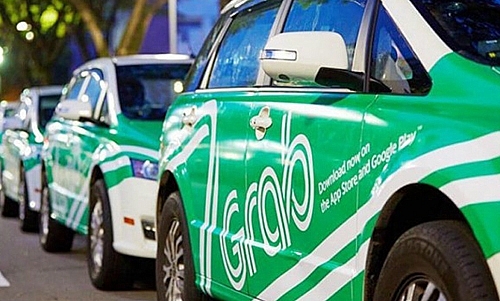Uber and Grab warned to comply or leave Vietnam
 |
| Uber and Grab warned to leave for Vietnam |
This was announced by Minister of Transport Nguyen Van The at the meeting on the draft decree on business and conditions for transportation business by automobile.
The minister stated that the new decree, which will replace the existing Decree No.86/2014/ND-CP, will have to be carefully built, especially the clauses relating to the management of the operations of Grab and Uber, as well as the two frims’ responsibilities to manage their drivers, according to information published on the government’s website.
The added that in case Uber and Grab are officially recognised as taxi firms, Vietnam must manage their vehicle volume. At present, the vehicle volume of Uber and Grab stands at a fair dozen thousands of units, exceeding the volume of traditional taxi companies after only three or four years of operations in Vietnam. If local authorities are overlook taxing the massive vehicle volume of these firms, they will create unfair competition with traditional taxi firms which pay heavy taxes after their fleets.
“After all, the operations of Uber and Grab and traditional taxi firms are similar. Thus, if Uber and Grab agree to operate under the management model applied to traditional taxi firms, they will be permitted to maintain operations, otherwise, they have to leave Vietnam,” The stated.
| The movement no only negates the efforts of the Vietnamese government and Grab to accelerate the development of the digital economy in Vietnam also shows a step back in the process of building a startup nation. |
Regarding the contents of the new decree on the responsibilities of Uber and Grab to manage their drivers, The asked the firms to sign a labour contract with their partners (according to the existing regulations, the drivers of Uber and Grab are recognised as partners of the company) so that the companies will assume responsibility for incidents en route (for example, customers forgetting their personal belonging or drivers physically assaulting customers).
Besides, Uber and Grab will have to publicise their fares and complete the tax obligation with Vietnamese government.
Responding to The’s opinion, Jerry Lim, country head of Grab Vietnam, claimed that recognising Uber and Grab as similar to taxi firms is a step back for Vietnam in the 4.0 era.
“The movement not only negates the efforts of the Vietnamese government and Grab to accelerate the development of the digital economy in Vietnam but also shows a step back in the process of building a startup nation,” said Lim.
According to Lim, drivers want to use their private vehicles to transport customers via ride-hailing applications so that they can operate freely without being pressured about time and minimum revenue or high commissions.
“As a technology firm, Grab connects customers with taxies, motorcycles, and private cars, which are closest to customers. We do not own any vehicles or drivers,” said Lim.
Along with customer transport services, Grab plans to expand operations in Vietnam to supply a series of services in the sectors of transport and logistics, and payment via e-wallet.
What the stars mean:
★ Poor ★ ★ Promising ★★★ Good ★★★★ Very good ★★★★★ Exceptional
Themes: Ride-hailing services
Related Contents
Latest News
More News
- VNPAY and NAPAS deepen cooperation on digital payments (February 11, 2026 | 18:21)
- Vietnam financial markets on the rise amid tailwinds (February 11, 2026 | 11:41)
- New tax incentives to benefit startups and SMEs (February 09, 2026 | 17:27)
- VIFC launches aviation finance hub to tap regional market growth (February 06, 2026 | 13:27)
- Vietnam records solid FDI performance in January (February 05, 2026 | 17:11)
- Manufacturing growth remains solid in early 2026 (February 02, 2026 | 15:28)
- EU and Vietnam elevate relations to a comprehensive strategic partnership (January 29, 2026 | 15:22)
- Vietnam to lead trade growth in ASEAN (January 29, 2026 | 15:08)
- Japanese business outlook in Vietnam turns more optimistic (January 28, 2026 | 09:54)
- Foreign leaders extend congratulations to Party General Secretary To Lam (January 25, 2026 | 10:01)

 Tag:
Tag:


























 Mobile Version
Mobile Version